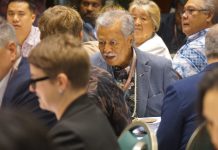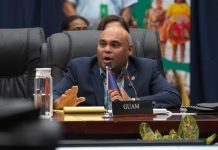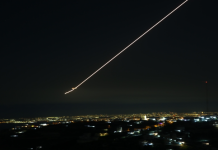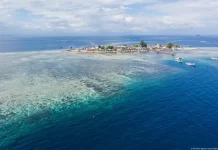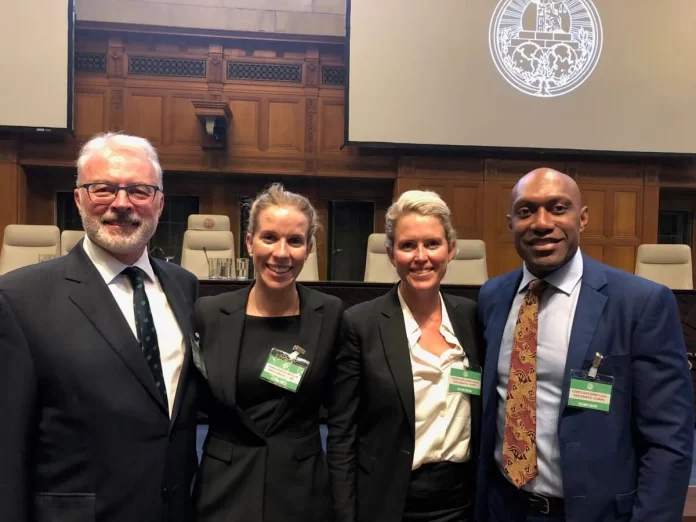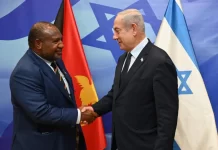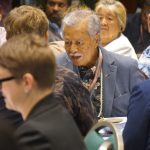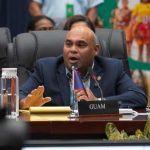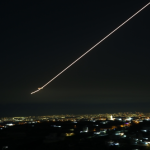Last week, the Government of the United Kingdom (UK) made the announcement that it would be handing back its last colony in Africa, the Chagos Islands, to the African island nation of Mauritius.
This historic announcement follows decades of pressure and negotiations, including a 2019 Advisory Opinion (AO) from the United Nations’ (UN) highest court, the International Court of Justice (ICJ), and a UN General Assembly vote, both of which said that the UK should return the islands to Mauritius.
The issue marked the first time ever that Vanuatu has been involved in a case before the ICJ. Under the direction of then Minister of Foreign Affairs, Ralph Regenvanu, Vanuatu voted in favour of a resolution at the UN General Assembly to refer the question concerning the legality of the UK’s administration of the Chagos Islands to the ICJ. The Prime Minister of Mauritius, Pravind Kumar Jugnauth, then wrote to PM of Vanuatu, Charlot Salwai, in early 2018 requesting Vanuatu to make oral submissions in the ICJ case in support of Mauritius. Vanuatu agreed, appearing before the Court in 2018 for the first time in its history.
On 25 February 2019, the ICJ delivered a resounding AO on the legality of the UK’s administration of the Chagos Islands as part of the British Indian Overseas Territory, finding that the UK’s administration of the islands is a continuing unlawful act, that the UK has an obligation to bring to an end its administration of the Chagos Islands “as rapidly as possible” and that all member States must cooperate with the UN to complete the decolonisation of Mauritius.
Ultimately, Vanuatu’s oral submissions were almost entirely reflected in the findings of the ICJ in this historic AO.
Vanuatu supported the position of Mauritius, along with a number of small island states and the African Union, because the facts in this case raised broader issues affecting many other States around the world, including in the Asia-Pacific region. In particular, Vanuatu argued that international law protected the rights of the Chagossians to freely and genuinely decide their future – i.e. their right to self-determination – and that the fact of this case showed that the Chagossians had so far been deprived of that right.
Vanuatu has long taken a principled position on the right to self-determination, including with respect of East Timor and West Papua. Its action is also consistent with the words of Father Walter Lini, the first Prime Minister of an independent Vanuatu:
“[The] Pacific is one of the last regions of the world where the heavy hand of colonialism continues to be played. […] These remnants of the past must be lifted from our ocean, for, in all truth, and as I have remarked before, until all of us are free, none of us are.”
Vanuatu was among a number of states, which made their first appearance before the Court, in recognition of the importance of this case and for the right to self-determination. The African Union, Botswana, Kenya and Zambia also appeared for the first time.
After the hearings in September 2018, then Foreign Minister Regenvanu said Mauritius was “thrilled” with Vanuatu’s submissions and reported that Prime Minister of Mauritius Jugnauth – who was in Court observing the proceedings and who personally congratulated the Vanuatu delegation – called Vanuatu’s oral intervention “one of the best of the week”. Former Foreign Minister Regenvanu went on to state:
“Vanuatu appeared in this case to have a voice on the international stage to clarify the right to self-determination – and the International Court of Justice has listened. Vanuatu has long been committed to standing up for self-determination and to ending colonisation, wherever it occurs – including in our own region. Vanuatu is pleased to have supported Mauritius and the African Union in this case.
The principles set down by the ICJ in this case will contribute to the resolution of ongoing disputes beyond the Chagos Islands, including in our negotiations with France over Matthew and Hunter Islands, and for the people of West Papua. We reiterate that all States have the obligation to refrain from any action that deprives people of their right to self-determination.”
Vanuatu was represented in these proceedings by three UK-based lawyers — Professor Robert McCorquodale of Brick Court Chambers, Jennifer Robinson of Doughty Street Chambers, and Nicola Peart of Three Crowns LLP — and Noah Patrick Kouback, who was then with the Permanent Mission of Vanuatu in Geneva and is now the newly-appointed Director General (DG) of the Ministry of Foreign Affairs.


